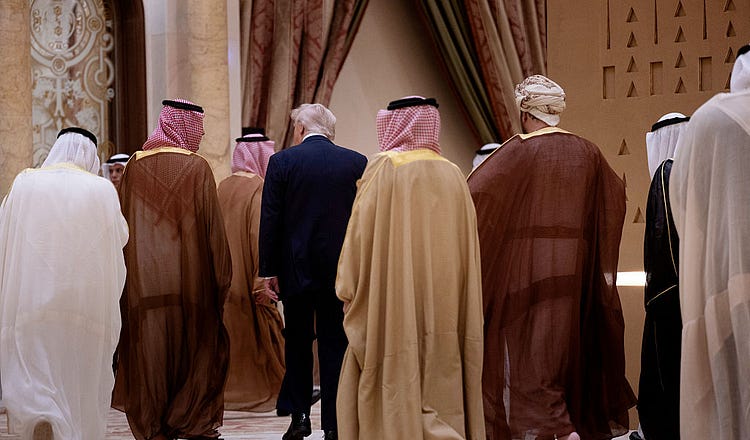The Most Important Speech of Trump’s Presidency

Amid the huge news out of the Middle East over the past 48 hours, what’s been overlooked is the speech delivered by Trump to rapturous applause in Riyadh. (Brendan Smialowski/AFP via Getty Images)
Eli Lake and Batya Ungar-Sargon on Trump’s epochal address in Riyadh.
--:--
--:--
Upgrade to Listen
5 mins
Produced by ElevenLabs using AI narration
162
“We seek the end of tyranny in our world. Some dismiss that goal as misguided idealism. In reality, the future security of America depends on it.” That was George W. Bush in his 2006 State of the Union.
Here was Donald Trump yesterday in Riyadh: “The gleaming marvels of Riyadh and Abu Dhabi were not created by the so-called ‘nation-builders,’ ‘neocons,’ …
Continue Reading The Free Press
To support our journalism, and unlock all of our investigative stories and provocative commentary about the world as it actually is, subscribe below.
$8.33/month
Billed as $100 yearly
$10/month
Billed as $10 monthly
Already have an account?
Sign In

